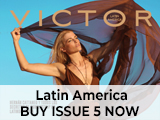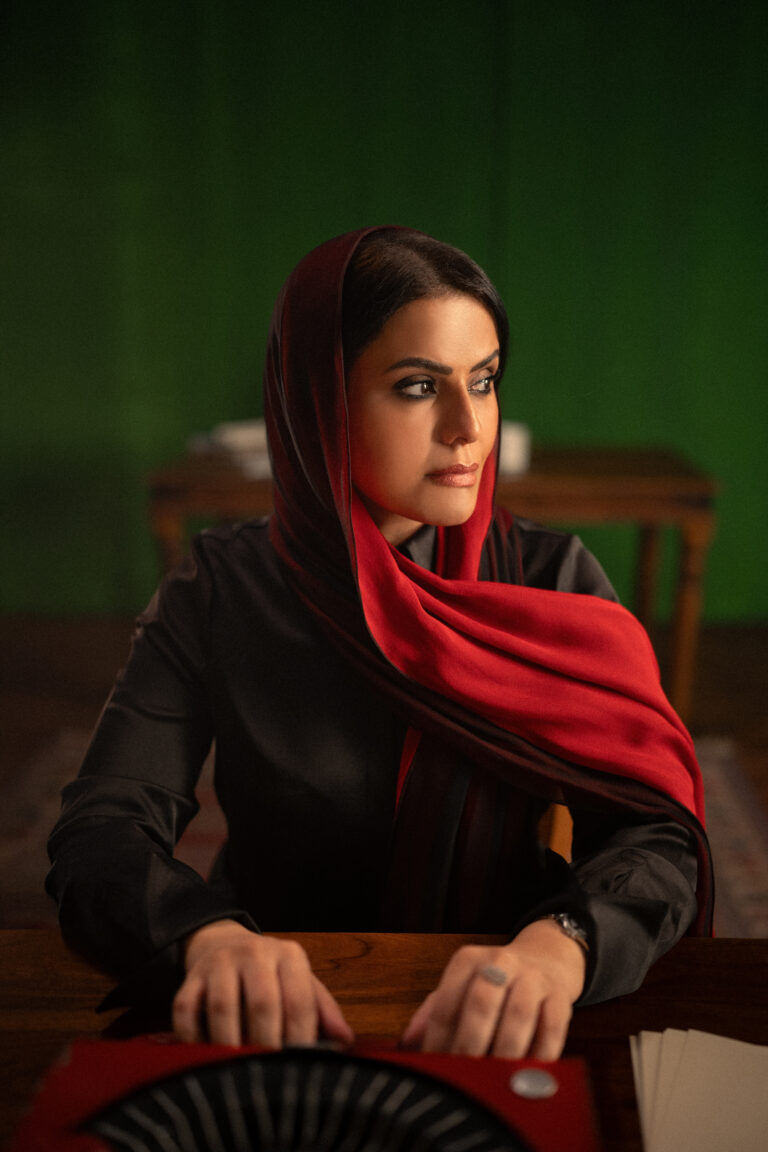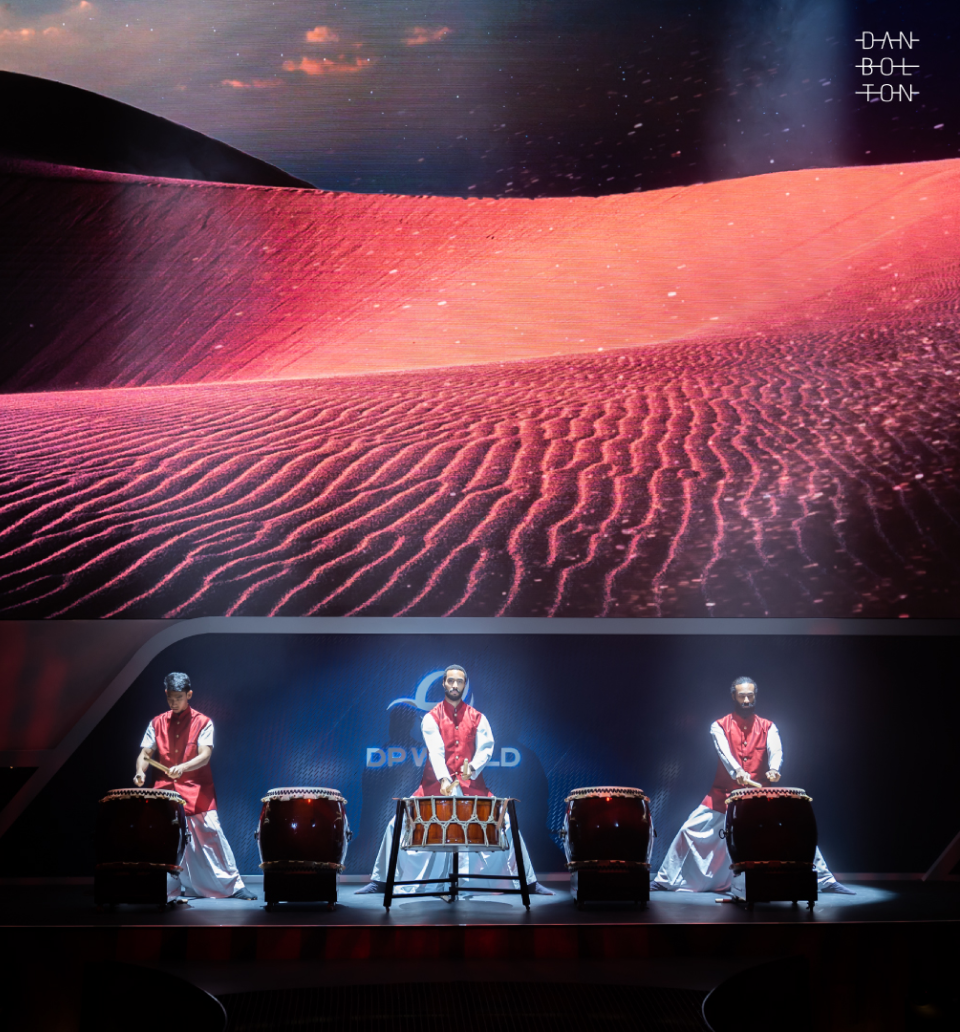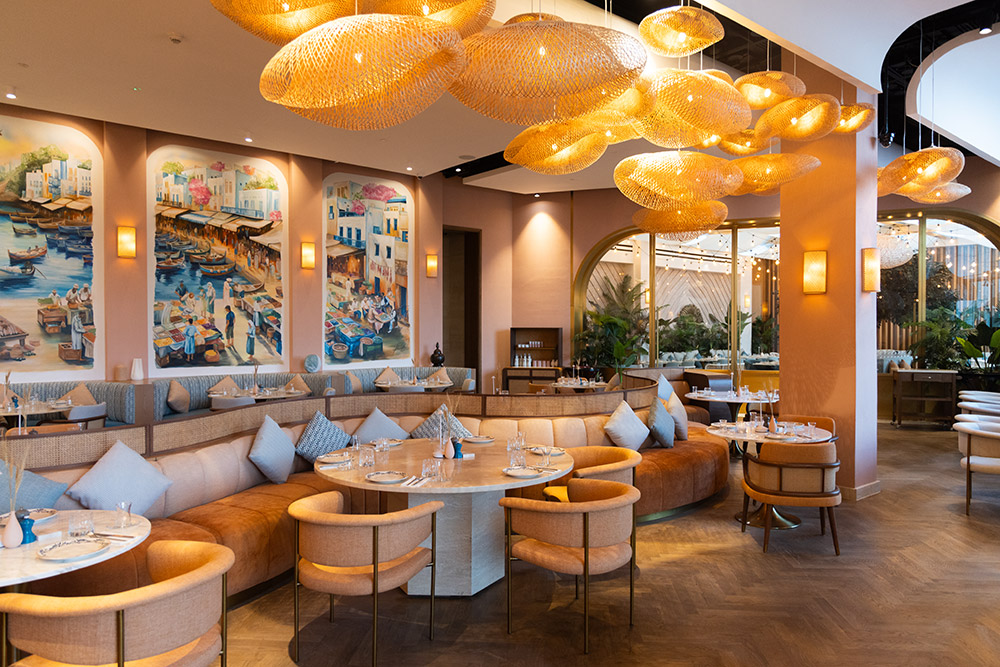
De Montfort University Showcases Innovative New Research on Sustainable Fashion at Expo 2020
Staff Report
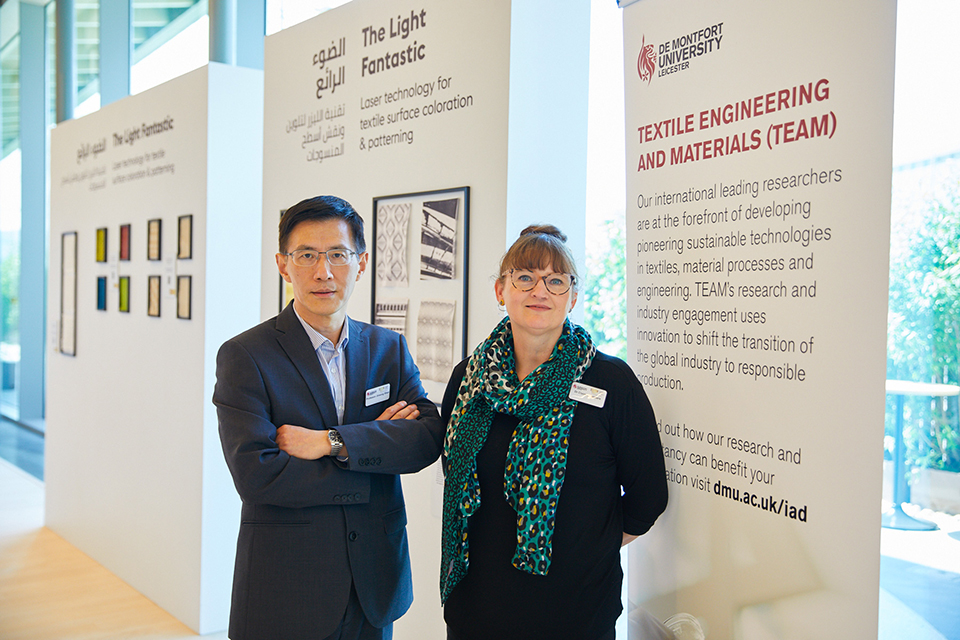
De Montfort University (DMU), one of UK’s leading public universities in Leicester, showcased its pioneering new research on sustainable fashion and textiles at Expo2020 to resolve challenges faced by the textiles industry. The university hosted debates and displayed student work as part of the UK Pavilion’s first themed week, ‘What Will We Wear.’
In line with its goal to create a circular fashion industry that eliminates pollution and exploitation, DMU staged a two-day Future of Textiles exhibition. Featuring research from Jinsong Shen, Professor of Textile Chemistry and Biotechnology, Martin Richardson, Professor of Modern Holography and Dr Lionel Dean, Senior Lecturer, School of Design, the display showcased a range of sustainable fabrics that were either created using space age technologies, or by using ancient materials in unexpected new ways.
DMU’s pioneering work in holographic fabrics was on show that offers three-dimensional depth in textiles without the requirement of cumbersome eyewear traditionally associated with 3D or VR imagery. This latest leap by the university paves the way for commercial opportunities with businesses looking to harness three-dimensional imaging technology.

To avoid the use of conventional synthetic dyes which can have harmful effects on the environment and human beings, DMU showcased eco-friendly new methods of dyeing clothes, including the use of biodegradable enzymes in natural fungi. This process uses multidisciplinary technology at a lower temperature than conventional dyes, resulting in the benefit of energy saving as well as a reduction in waste from materials and water.
On the occasion, Dr Claire Lerpiniere, a senior lecturer in Textile Design at DMU stated, “It is really important to have the opportunity to take issues surrounding a sustainable fashion industry to a world stage in Dubai because we all need to collaborate to make it happen. We should not be looking at how we create fashion for less but how we create fashion as a force for good in the world, instead of it being polluting and exploitative in its nature. We need academics, scientists, activists and the heads of industry to work together and I find it really exciting that we had the opportunity to be central to these conversations at Expo.”

“Our efforts at the Expo 2020 are part of our wider goal to turn our often-criticized fashion industry into one that is responsible and conscious. By displaying our research on global platforms, we endeavor to transform how we create and consume fashion,” added another DMU Leicester visiting faculty member, Professor Jinsong Shen. “The methodologies we are presenting here such as the enzyme biotechnology for machine washable wool, electroforming for metallised embellishment on textiles, and the use of sustainable bast fibers, are all focused at alleviating the human and ecological impacts of textiles.”
DMU wrapped up the event by showcasing collections from graduates of the classes of 2020 and 2021 in the School of Fashion and Textiles as part of a stunning catwalk show hosted at the entrance of the UK Pavilion. To produce many of the designs modelled during the show, students developed innovative sustainable methods or introduced sustainable technology into their approaches.
DMU has embedded the United Nations’ 17 Sustainable Development Goals (SDGs) into all its teaching and encourages students to incorporate the aims of the SDGs into the work they produce.
As a founding partner of the UK Pavilion at Expo 2020, DMU will have a continuous presence at Expo showcasing its high-impact research and innovative approaches to sustainability, while creating unparalleled experiences for its students during and after the event.
Moreover, having shown the world their advanced research in making the textile industry more sustainable at the world’s biggest event, the university has also invested in a brand-new campus at the Dubai International Academic City to bring their academic legacy to the Middle East region.

By Author


Carluccio’s Takes Burgers to Italy with the Bold Burger Italiano Menu
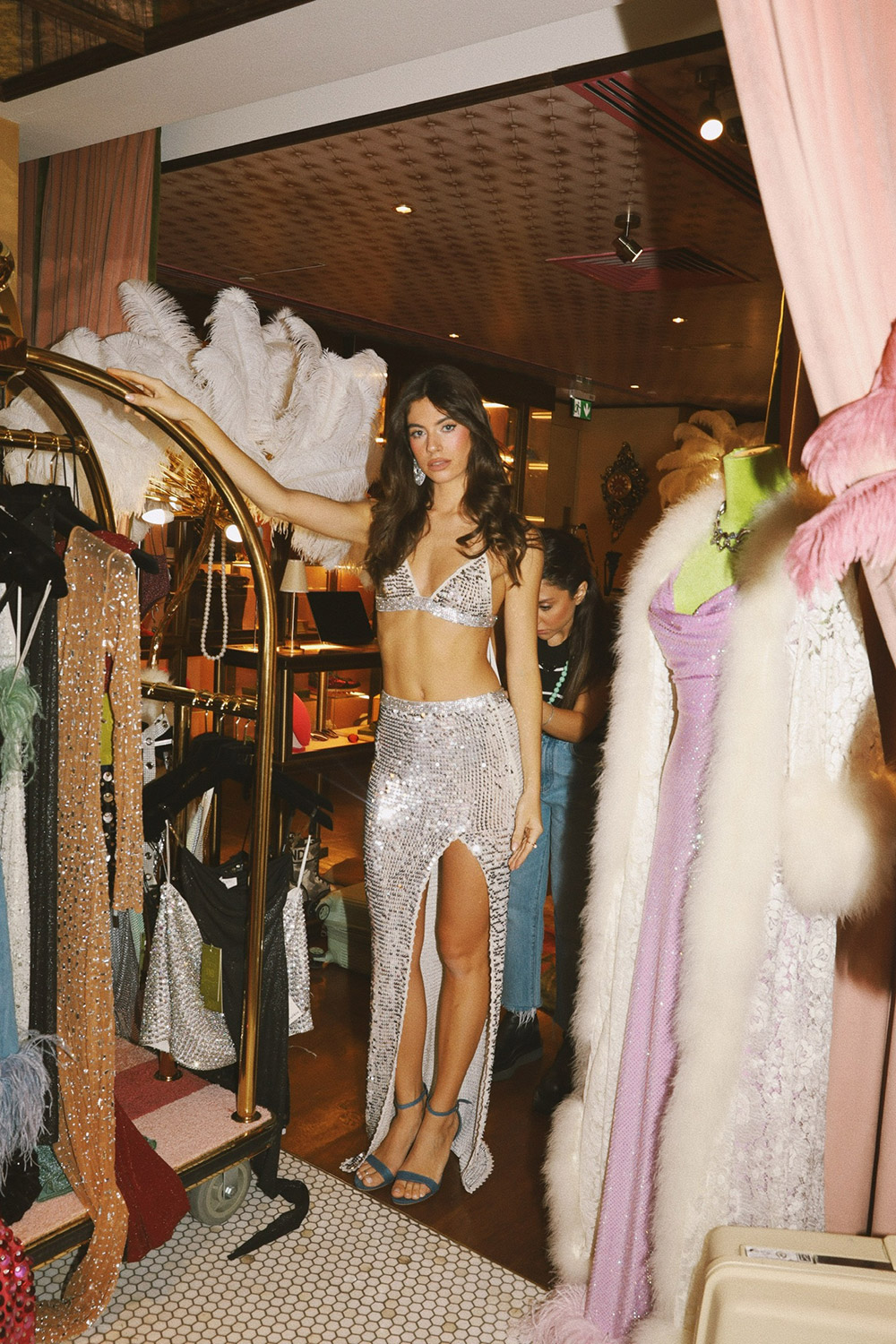
Endless Paves the Way for Circular Fashion’s Explosive Growth in the UAE
no related post found

MESMERIZE: Where Artistry and Innovation Unite in a Ballet of Elegance

“Flowers are our favorite F word!”

Indulging in Love and Flavor at Playa: A Valentine’s Day Delight

MESMERIZE: Where Artistry and Innovation Unite in a Ballet of Elegance

“Flowers are our favorite F word!”



